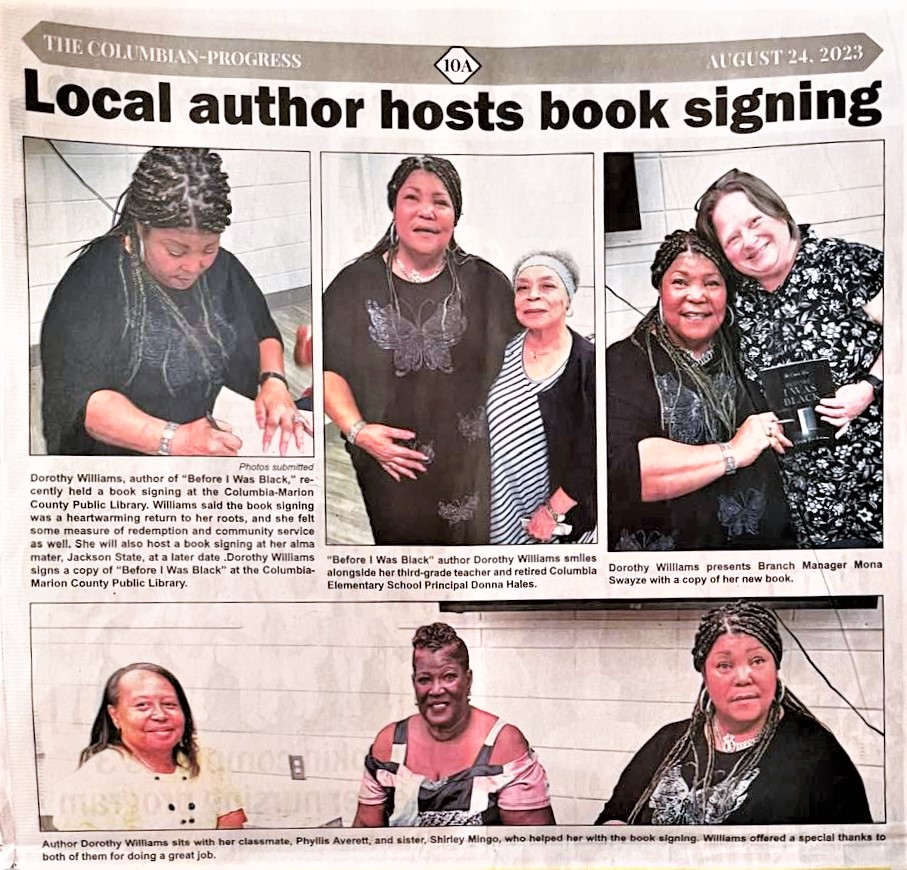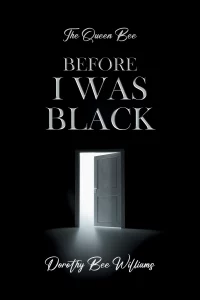Book Review




 The Queen Bee: Before I Was Black
The Queen Bee: Before I Was Black
by Dorothy Bee Williams
Aspire Publishing Hub
book review by Barbara Bamberger Scott
“My black, our black is receptive and forgiving, it is a cornerstone, strong and brilliant and it is created in the image of God.”
Author Williams’ long pathway to achievement began when she was born into dire poverty in Columbia, Mississippi. She was one of eight children whose mother was hardworking and hopeful that her children would have better lives someday. The book’s first segment, “Before I Was Black,” recounts her young years during which her status as a black person seemed to affect every aspect of her being. She saw that white people had the “good label,” and she wanted that label for herself. She was endowed with high intelligence and notable artistic ability but was constantly stymied by the limitations of her skin color. Rebellious from an early age, she developed a tendency to steal and was often severely punished at home and at school. As she entered high school, the family finally lived in a house with an indoor bathroom. Meanwhile, the national era of school integration had begun. Williams was treated well by fellow honor students and artists while she “partied with the wild bunch.”
In “Becoming Black” she recalls how her youthful tendency for thievery led to adult involvement with drugs and serious crime. She would spend time in jail and prison, attempt suicide, and find some helpful rehabilitation opportunities, gaining further insight into what being black might mean for herself and others. Impelled by her mother’s values and her own daring, she retained the spark of desire to better herself. She joined the military, served overseas, and gained a new perspective on how people of color are regarded outside America. She then explored some of those possibilities. “Black on Purpose” shows Williams as she has come to define herself—a proud, outspoken, and active part of her black community. She abandoned her past notions of needing white people as a means to prosperity and is now assured by her own achievements that she can be fully flourishing, productive, satisfied, and industrious by dint of her own strength of character, persistence, and grounded faith.
Williams has a bachelor’s degree in fine arts and has garnered numerous distinctions as a graphic artist, poet, and clay sculptor. In this dynamic memoir, she shows her skills in literary composition, painting in words her life experience and the philosophy she carved from it. She candidly acknowledges a myriad of pains, such as PTSD, brain tumors, rape, the loss of the ability to have children, and a litany of discriminations shared by so many of her people. She has found God to be her comfort and mainstay and now resolves to look up to larger solutions. In her work, she offers some valuable life advice. For example, these twists and turns she has experienced have brought her to a point of not accusing others but revealing to readers what she had to learn to become a strong, independent American. All race groups, she asserts, have good people and bad, and every individual within those groups is charged with the duty of helping others. Blackness can become a cornerstone for one’s life construction. Williams here offers a wide-ranging, open-minded, and multi-faceted view of a life well lived and lessons well learned that will surely make a lively centerpiece for sharing in community and church settings, touching all who have resolved to discover and absorb a broader, well-lit pathway.
RECOMMENDED by the US Review